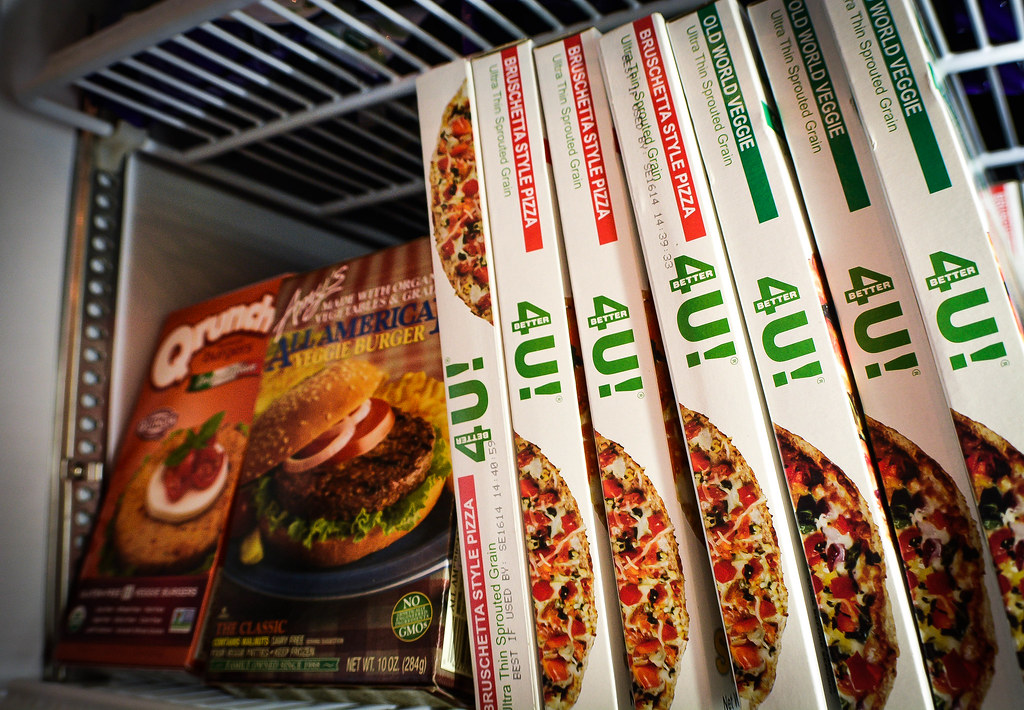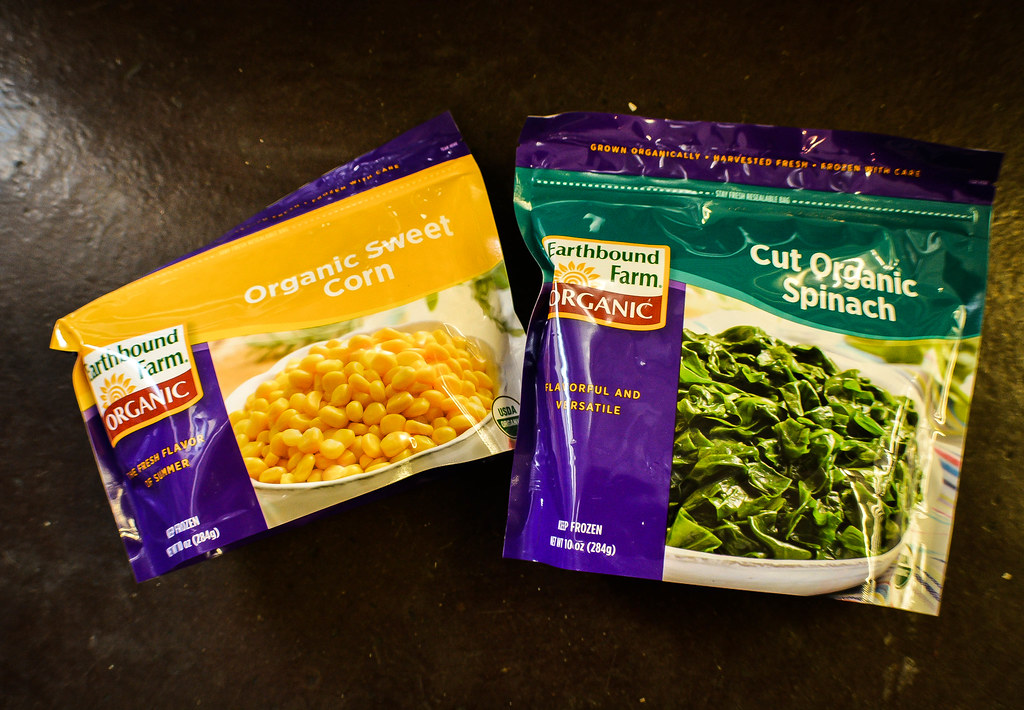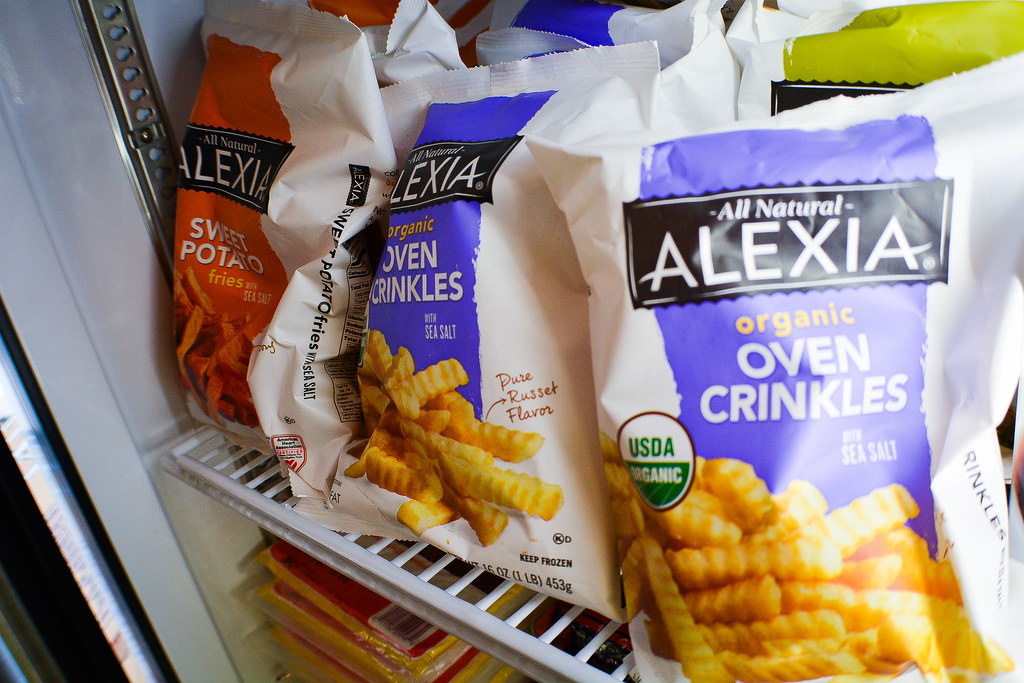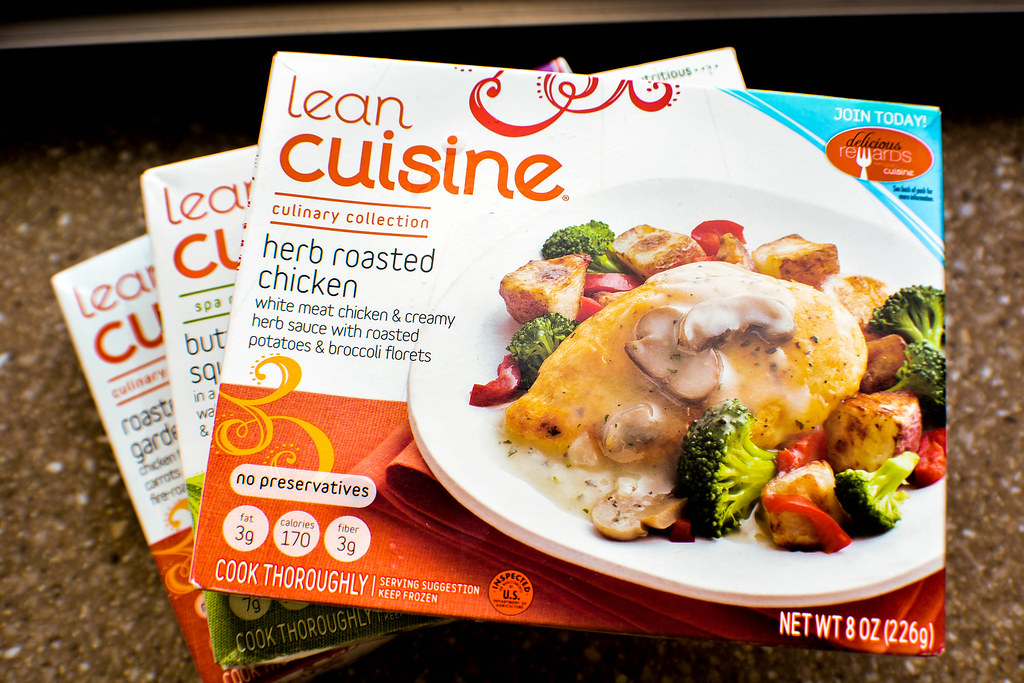‘Twas a cold night of endless snowfall when I reached for one of many Trader Joe’s Chicken Tikka Masala frozen meals I had in my freezer. Three minutes in the microwave on high and I was settling into a swirling pool of spices and creamy chicken when my phone rang.
My dad called and asked what was up. When I told him what I was eating he couldn’t believe it. “Why would you eat a frozen dinner when I sent you an assortment of Indian spices last week?” He acted like eating a frozen dinner was a felony.
In my mind I had committed no crime. I was still cooking, even if it required about as much mental strength as manning the Icee machine at Target.

Photo by Anna Hsu
My dad is the type of culinary enthusiast who bent over backwards to make sure a home-cooked meal was on the table every night. I was supposed to be his shining prodigy. He now couldn’t even believe that I could possibly be his biological daughter. I knew that he felt betrayed by my venture into the freezer section.

Photo by Anna Hsu
He had a point, of course. There are oodles of health problems associated with the flash-freezing preservative process, often trading nutritional value for shelf life. Sodium and trans fats are often way off the charts. Unless you’ve been living under a rock for the past few decades, you will have undoubtedly noticed an increase in diet-related health problems. America is one of the most obese countries in the world, now second only to Mexico, a stat which was celebrated by satirical web publications as if we had just won an international peace prize.

Photo by Anna Hsu
But is frozen food really the villain here? Forty percent of Americans think that frozen meals offer little to no nutritional value and younger consumers are turning away from frozen foods in search of “fresher” foods. Yes, there is certainly more to be gained from a cup of raw spinach than a cup of frozen spinach.
But when the option lies between a frozen Indian dinner of cooked chicken and rice or a fast food burger, where do we draw the line? We cannot rely on convenience for much longer to keep our bodies healthy. But at the same time we have to ask: is the issue a nutritional or an egotistical one? Was it my waistline that my father was worrying about or my implied inability to take care of myself?
Perhaps we must consider that the issues with frozen food aren’t manifested in nutritional concerns but, are in fact rooted in a much bigger, more complex issue of generational values and beliefs. Perhaps my father was so mad about my meal choice not because it failed to adhere to FDA dietary recommendations but rather because it showed I didn’t care about the process of learning how to do something on my own.

Photo by Anna Hsu

